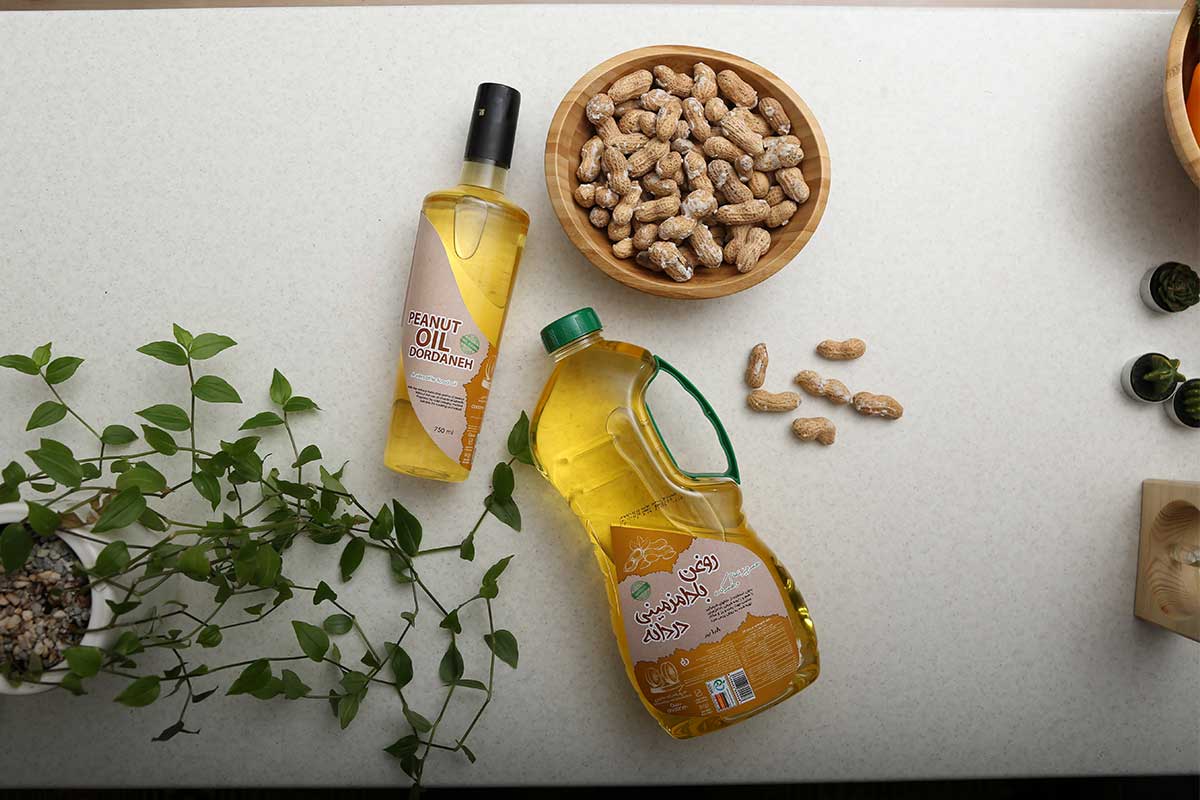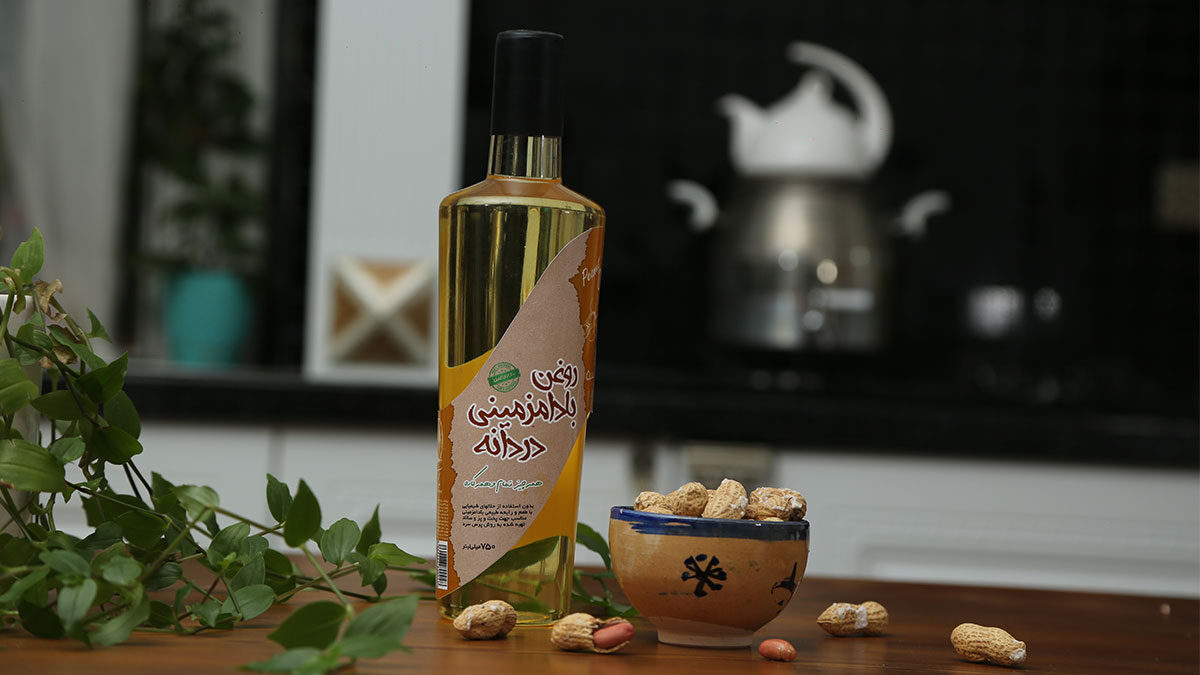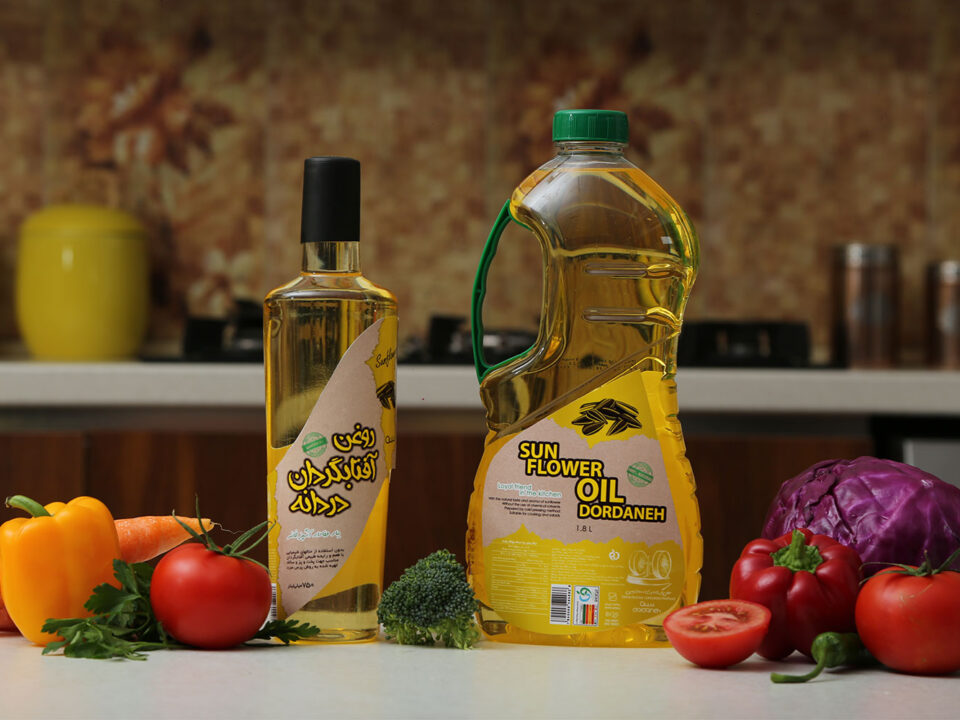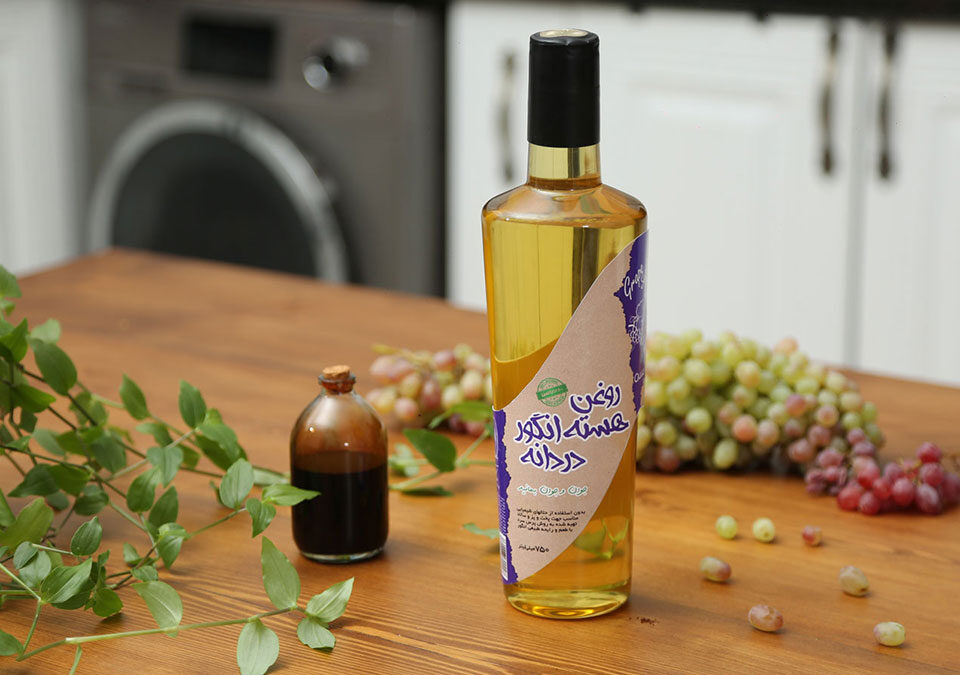Suitable for cooking, salads and roasting
Properties of peanut oil
- It dilates the body’s arteries and facilitates blood flow.
- Prevent blood clots and stroke.
- Reduce the risk of gallstone progression.
- Reduce the risk of colon cancer.
- Laxative and constipation repellent.
- Reduce the risk of cardiovascular disease.
- Has properties similar to olive oil

Peanut oil
This oil is actually prescribed by nature for frying purposes. Its polyunsaturated fatty acids are only 20% and linoleic. The rest is oleic and 17% saturated. The high percentage of oleic acid is one of the most important factors in the health of the oil. The effect of oleic acid on the health of the cardiovascular system has been proven in numerous studies and it is recommended that its consumption be as high as possible. Lowering cholesterol and reducing the risk of cardiovascular disease has been proven for peanut oil (Ghadimi and colleagues (2010)). It has also been reported to have a positive effect on insulin and its function and diabetes. Researchers at Harvard School of Public Health, in a group study of more than 83,000 women, found that women who ate nuts or peanut butter had a lower risk of developing type 2 diabetes.
This oil also contains iron, zinc, vitamins K and E. Another active ingredient in cold pressed peanut oil is squalene, which has significant antioxidant and antibacterial properties.
Of course, allergenic proteins may remain in the refined oil. Complete purification separates them.
As mentioned earlier, peanut oil is the best choice for frying. High smoke point and low polyunsaturated fatty acids make this oil more heat tolerant than other vegetable oils and less oxidative damage. In addition, this oil creates special and pleasant sensory properties (taste, crispness, mouthfeel) in fried food, especially in steaks and all kinds of barbecue dishes.






